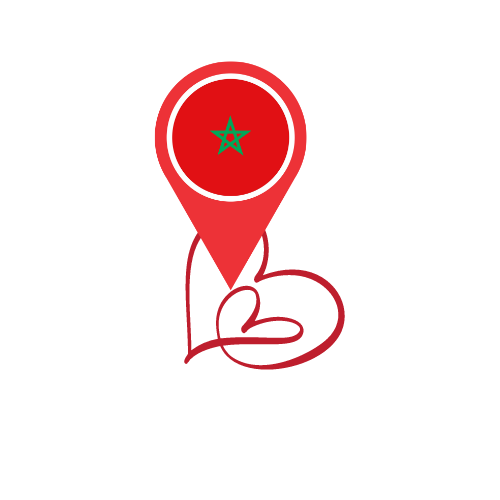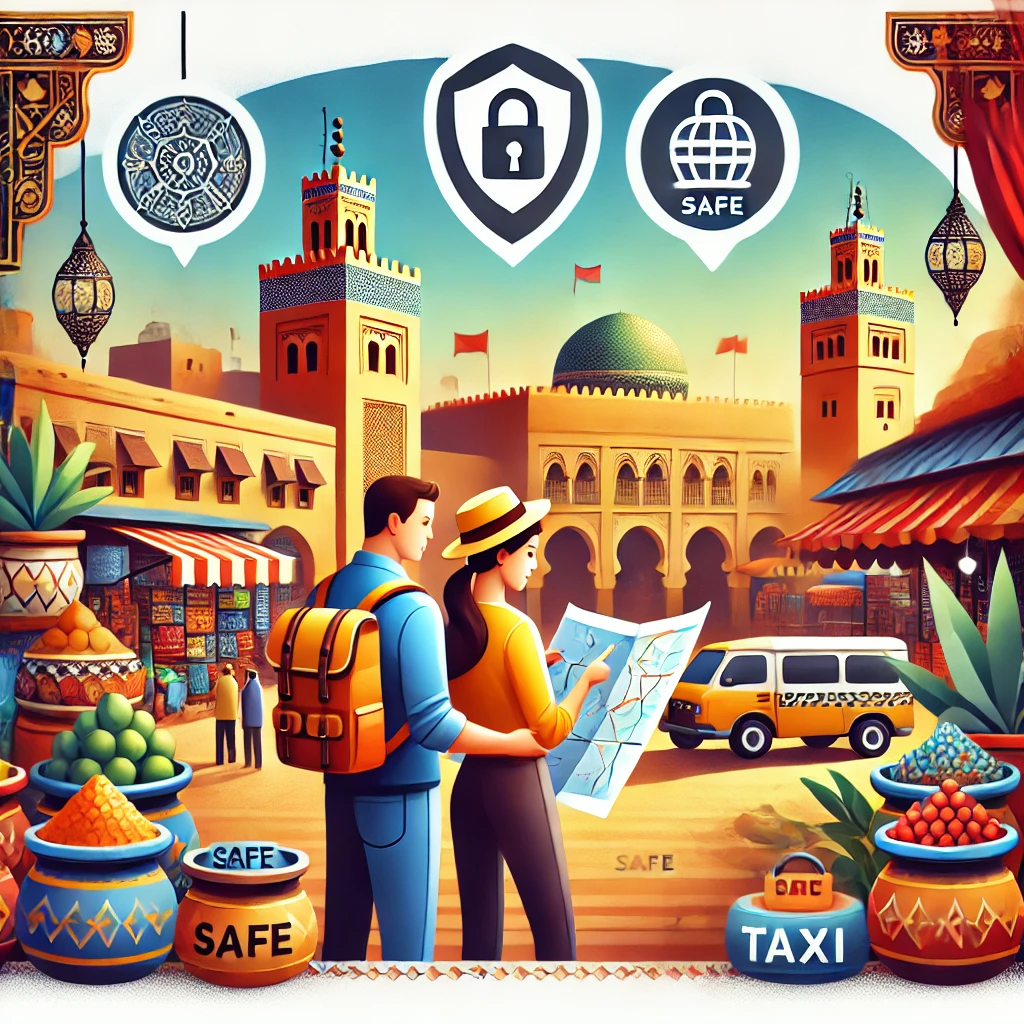Stay Safe & Enjoy Morocco with Confidence
Morocco, a land of vibrant souks, majestic mountains, and breathtaking coastal landscapes, is a traveler’s dream. However, as with any foreign destination, understanding the local customs, laws, and potential safety concerns can make your journey more enjoyable. By being prepared and staying aware, you can fully embrace the magic of Morocco while keeping yourself secure. Here’s everything you need to know before you go!
1. Is Morocco Safe for Tourists?
Yes! Morocco welcomes millions of visitors annually, with most enjoying a trouble-free experience. While serious crime is rare, petty theft and scams can occur, especially in busy tourist areas. Law enforcement is active in major cities, and tourism is a vital part of the economy, so authorities take visitor safety seriously.
Key Tips:
- Stick to well-populated areas, especially after dark.
- Use hotel safes for valuables and carry only essentials when exploring.
- Stay aware of your surroundings in crowded places.
2. Avoiding Scams & Tourist Traps
Like any popular destination, Morocco has its fair share of tourist scams. Some locals may offer unsolicited guidance, sell overpriced goods, or even request tips for minor favors.
Common Scams to Watch Out For:
- Fake guides: Always book official guides through your hotel or travel agency.
- Henna artists: Some apply henna without consent and demand payment.
- Taxi overcharging: Always insist on using the meter or agree on a price beforehand.
What You Can Do:
- Be firm but polite when declining offers.
- Verify prices before purchasing or accepting services.
- Trust your instincts—if something feels off, walk away.
3. Safe Transportation Tips in Morocco
Navigating Morocco is relatively straightforward, but knowing your options can prevent unnecessary stress.
Taxis & Public Transport
- Use Petit Taxis for short distances and insist on using the meter.
- Grand Taxis (shared taxis) are useful for intercity travel but negotiate fares in advance.
- Women traveling alone should sit in the back seat to avoid unwanted attention.
Train & Bus Travel
- ONCF trains are reliable and the safest way to travel between cities.
- CTM and Supratours are trusted bus companies with designated stops and schedules.
4. Staying Safe in Moroccan Cities
In the Medinas & Souks
- Keep your bag close to your body to avoid pickpockets.
- Avoid following strangers offering “secret” routes.
- If you get lost, seek help from shop owners rather than random passersby.
Nighttime Safety
- Stick to main streets and well-lit areas.
- Avoid isolated alleys, especially if alone.
- Women should dress modestly to blend in and deter harassment.
5. Health & Food Safety in Morocco
The rich flavors of Moroccan cuisine are a highlight, but it’s important to be mindful of food hygiene.
Tips for Staying Healthy:
- Water: Stick to bottled or filtered water to avoid stomach issues.
- Street food: Choose busy vendors with high turnover to ensure fresh ingredients.
- Hygiene: Wash hands frequently and carry hand sanitizer.
6. Women’s Safety in Morocco
Morocco is generally safe for female travelers, but cultural differences can sometimes lead to uncomfortable situations.
How to Stay Comfortable and Secure:
- Dress conservatively to respect local customs and minimize unwanted attention.
- Walk confidently and avoid engaging with persistent strangers.
- Consider joining group tours for added security and companionship.
7. Money & Personal Belongings Safety
Handling money wisely can prevent theft and fraud.
- Use ATMs inside banks rather than street ATMs.
- Carry small denominations for daily expenses.
- Avoid flashing cash or valuables in public spaces.
- Use an anti-theft bag or money belt for added security.
8. Dealing with Local Laws & Police
Morocco has strict laws regarding behavior, and respecting them ensures a hassle-free trip.
- Always carry a copy of your passport as ID checks are common.
- Public intoxication is frowned upon; drink responsibly in designated areas.
- Avoid discussions or gestures that may be offensive to local culture.
9. Emergency Contacts & What to Do in Crisis
In case of emergency, it’s crucial to know whom to contact.
- Police: 19 (Urban Areas), 177 (Royal Gendarmerie for rural areas)
- Ambulance: 15
- Tourist Police: Available in major cities to assist visitors.
- Embassy: Keep your country’s embassy details handy.
10. Travel Insurance: Why You Need It
Travel insurance is an essential investment for any trip.
- Covers medical emergencies, lost baggage, and trip cancellations.
- Protects against unexpected costs like flight delays.
- Recommended providers: World Nomads, Allianz, SafetyWing.
Conclusion: Enjoy Morocco with Peace of Mind!
Morocco is a mesmerizing destination filled with history, adventure, and cultural wonders. By staying informed and practicing basic safety measures, you can enjoy a worry-free trip. Keep these tips in mind, trust your instincts, and immerse yourself in the beauty of Morocco. Happy travels!
FAQs: Travel Safety in Morocco
Q1: Is Morocco safe for solo female travelers?
A: Yes, but dressing modestly and avoiding walking alone at night is recommended.
Q2: Can I drink tap water in Morocco?
A: It’s best to stick to bottled or filtered water to avoid stomach issues.
Q3: Are taxis safe in Morocco?
A: Yes, but always use metered taxis or agree on a price beforehand.
Q4: What should I do if I get scammed?
A: Report the incident to the local police and your embassy if necessary.

